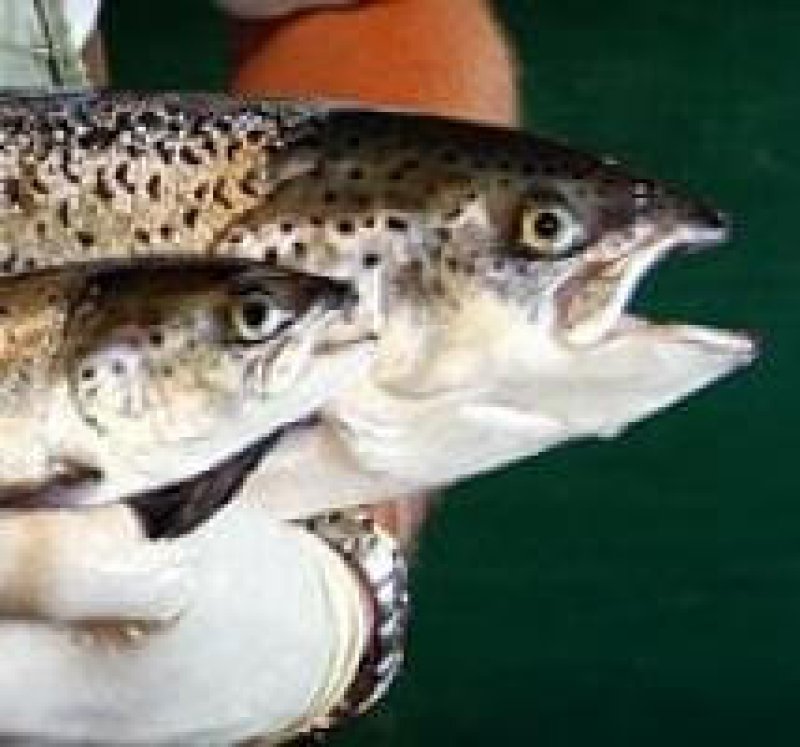A genetically modified salmon, called AquAdvantage, is awaiting FDA approval, and, when it does, the fish should be available for consumption in about two years, according to the company.
Americans consume 300,000 tons of salmon yearly, according to Bloomberg Businessweek‘s Brendan Borrell. And with two-thirds of that coming from farmed Atlantic salmon — the wild version of which is endangered — the market seems ripe for an upgrade of the food.
But not all are pleased with its arrival.
The GMO salmon has a few advantages over its conventionally farmed counterpart. Constant hormone release allows it to grow more quickly — 16 to 18 months — compared to conventional farmed salmon, which grows in spurts during warm weather reaching market sizes in 31 to 36 months, according to AquaBounty, the company that created AquAdvantage.
So how worried should we be about this fish?
“The scientific community is 99.99999999 percent not bothered by this fish at all. There is no scientific controversy, period,” Bruce Chassy, a professor of food safety and nutritional science at the University of Illinois, Urbana-Champaign, told Business Insider in an interview.
AquaBounty agrees. According to the company’s website, the fish may be the most well-studied Atlantic salmon in aquaculture, with over two decades of research. Despite concerns, the company seems confident that the chance of the fish escaping — much more escaping, surviving, and breeding — is hardly in the realm of possibility.
Perhaps there is one thing all sides can agree on. Anne Kapuscinski, a Dartmouth College sustainability professor who studies transgenic fish, told the Star: “This fish is precedent-setting.”
Read the full, original article: This salmon will likely be the first genetically modified animal you eat































